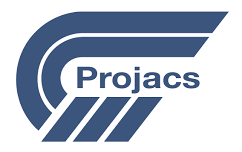
Advocacy and Campaigning for NGOs
Course ID: 2507070107765ESH
Course Dates : 07/07/25 Course Duration : 5 Studying Day/s Course Location: London, UK
Language: Bilingual
Course Category: NGO Programmes
Course Subcategories: Fundraising and Financial Management
Course Certified By: ESHub CPD & LondonUni - Executive Management Training
* Professional Training and CPD Programs
Certification Will Be Issued From :
From London, United Kingdom
Course Fees: £5,120.30
Vat Not Included in the price. VAT may vary depending on the country where the course or workshop is held.
Click to Pay
Date has passed please contact us Sales@e-s-hub.com
Course Information
Introduction
The role of non-governmental organizations (NGOs) in shaping public policy, influencing societal change, and addressing global challenges has never been more critical. Advocacy and campaigning serve as the backbone of an NGO’s ability to effect meaningful transformation. Whether it is lobbying for legislative reform, raising awareness about social injustices, or mobilizing communities for action, advocacy empowers NGOs to amplify marginalized voices and drive systemic change. This course delves into the strategic frameworks, tools, and methodologies that underpin successful advocacy campaigns, equipping participants with the skills necessary to navigate complex political, social, and economic landscapes.
Despite the growing recognition of advocacy as a vital function, many NGOs face significant challenges in executing effective campaigns. Limited resources, insufficient understanding of target audiences, and inadequate strategies often hinder their efforts. For instance, the failure of the 2018 "Save Our Schools" campaign in Australia highlights how poorly designed messaging and lack of stakeholder engagement can undermine even well-intentioned initiatives. By addressing these gaps, this course seeks to bridge theory and practice, enabling participants to design evidence-based campaigns that resonate with diverse audiences and achieve measurable outcomes.
Mastering the art of advocacy and campaigning offers profound benefits not only for individuals but also for the organizations they represent. For professionals, acquiring expertise in this domain enhances career prospects, fosters leadership capabilities, and builds credibility within the sector. Organizations, on the other hand, stand to gain increased visibility, stronger donor relationships, and greater influence over decision-making processes. Drawing from established theories such as Kotler’s Social Marketing Framework and Freire’s Participatory Action Research, this course integrates academic rigor with practical insights to ensure participants are equipped with cutting-edge knowledge.
Consider the success of Amnesty International’s “Write for Rights” campaign, which mobilized millions globally to advocate for human rights defenders. Such examples underscore the transformative potential of well-executed advocacy efforts. By dissecting real-world case studies like this, participants will gain valuable lessons in strategy formulation, coalition building, and impact measurement. These lessons are particularly relevant in today’s interconnected world, where digital platforms have revolutionized how messages are crafted, disseminated, and received.
Moreover, the course addresses emerging trends in advocacy, including the use of data analytics, artificial intelligence, and social media to enhance campaign effectiveness. Participants will explore how tools like sentiment analysis and geotargeting can refine audience segmentation and optimize resource allocation. By staying abreast of technological advancements, NGOs can remain agile and responsive to evolving societal needs. The curriculum also emphasizes ethical considerations, ensuring that campaigns uphold principles of transparency, inclusivity, and accountability.
Ultimately, this course is designed to empower participants to become catalysts for change. Through a blend of interactive workshops, expert lectures, and hands-on exercises, attendees will emerge with the confidence and competence to lead impactful advocacy initiatives. Whether advocating for climate justice, gender equality, or healthcare access, graduates of this program will be poised to make a lasting difference in their respective fields.
Objectives
By attending this course, participants will be able to:
Analyze the key components of successful advocacy campaigns using established theoretical models.
Evaluate the needs and preferences of target audiences through data-driven research methods.
Design comprehensive advocacy strategies that incorporate both traditional and digital communication channels.
Implement stakeholder engagement techniques to build coalitions and foster collaboration.
Apply ethical guidelines to ensure campaigns align with principles of integrity and inclusivity.
Assess the impact of advocacy efforts using quantitative and qualitative metrics.
Synthesize lessons from real-world case studies to adapt best practices to unique organizational contexts.
Who Should Attend?
This course is ideal for:
NGO leaders and managers seeking to enhance their organization’s advocacy capabilities.
Communication specialists responsible for crafting and executing campaign messages.
Policy analysts and lobbyists aiming to strengthen their influence on legislative processes.
Fundraisers and development officers looking to integrate advocacy into fundraising strategies.
Social entrepreneurs and activists interested in leveraging advocacy for social innovation.
These groups will find the course invaluable as it provides actionable insights tailored to the dynamic needs of modern NGOs. While prior experience in advocacy is beneficial, the course is structured to accommodate beginners and intermediate learners, offering foundational knowledge alongside advanced applications.
Training Method
• Pre-assessment
• Live group instruction
• Use of real-world examples, case studies and exercises
• Interactive participation and discussion
• Power point presentation, LCD and flip chart
• Group activities and tests
• Each participant receives a 7” Tablet containing a copy of the presentation, slides and handouts
• Post-assessment
Program Support
This program is supported by:
* Interactive discussions
* Role-play
* Case studies and highlight the techniques available to the participants.
Daily Agenda
Daily Schedule (Monday to Friday)
- 09:00 AM – 10:30 AM Technical Session 1
- 10:30 AM – 12:00 PM Technical Session 2
- 12:00 PM – 01:00 PM Technical Session 3
- 01:00 PM – 02:00 PM Lunch Break (If Applicable)
- Participants are expected to engage in guided self-study, reading, or personal reflection on the day’s content. This contributes toward the CPD accreditation and deepens conceptual understanding.
- 02:00 PM – 04:00 PM Self-Study & Reflection
Please Note:
- All training sessions are conducted from Monday to Friday, following the standard working week observed in the United Kingdom and European Union. Saturday and Sunday are official weekends and are not counted as part of the course duration.
- Coffee and refreshments are available on a floating basis throughout the morning. Participants may help themselves at their convenience to ensure an uninterrupted learning experience Provided if applicable and subject to course delivery arrangements.
- Lunch Provided if applicable and subject to course delivery arrangements.
Course Outlines
Foundations of Advocacy
Introduction to Advocacy: Definitions, Types, and Importance
Historical Evolution of Advocacy Movements
Key Theories and Frameworks in Advocacy
Identifying Advocacy Opportunities and Challenges
Day 2:
Audience Analysis and Messaging
Conducting Stakeholder Mapping and Analysis
Crafting Compelling Messages for Diverse Audiences
Understanding Psychological Triggers in Persuasion
Utilizing Storytelling Techniques for Maximum Impact
Day 3:
Strategic Planning and Implementation
Setting SMART Goals for Advocacy Campaigns
Developing Multi-Channel Communication Strategies
Building Partnerships and Coalitions
Managing Resources Effectively
Day 4:
Digital Tools and Technologies
Leveraging Social Media for Advocacy
Introduction to Data Analytics for Campaign Optimization
Using AI and Automation in Outreach Efforts
Ensuring Cybersecurity and Privacy Compliance
Day 5:
Monitoring, Evaluation, and Ethics
Designing Impact Assessment Frameworks
Collecting and Analyzing Campaign Data
Addressing Ethical Dilemmas in Advocacy
Presenting Findings to Stakeholders and Donors



















































